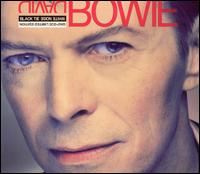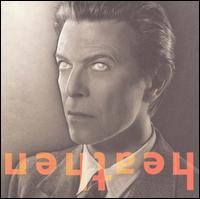
In the meantime, here are my favorite of his albums. Some might be your favorites too.

Some of the most challenging work of Bowie's career. The album is fairly evenly divided between short songs and longer instrumental pieces. By fusing rock with electronica, he paved the way for the Industrial genre which would take hold a few years later.

The second Berlin era album is more song friendly than the first. There's some great guitar work from King Crimson's Robert Fripp.

The culmination of all his 70s work, Scary Monsters is universally acknowledged as one of Bowie's greatest albums. Very much a post-punk album, there are small traces of what would eventually become Darkwave. Again, some great guitar work from Robert Fripp and Carlos Alomar.

Never heard of this one? That's because the label that originally released it folded, leaving it out of print for 11 years. The 2004 reissue includes a DVD and a second disc containing remixes. You have to like Londonbeat(British club music) to like this one. Bowie taps into a sound favored by the likes of Lisa Stansfield or Amber. If you like British dance music and are not scared away by the $29 price tag, then this one's right up your alley. A good one to play when you're alone with a (potential) significant other.

1. Intro (1:24)
2. Outside (4:04)
3. The Heart's Filthy Lesson (4:57)
4. A Small Plot Of Land (6:33)
5. Segue (1:40)
6. Hallo Spaceboy (5:14)
7. The Motel (6:51)
8. I Have Not Been To Oxford Town (3:46)
9. No Control (4:32)
10. Segue (2:02)
11. The Voyeur Of Utter Destruction (4:20)
12. I Am With Name (4:01)
13. Wishful Beginnings (5:08)
14. We Prick You (4:34)
15. Segue (1:00)
16. I'm Deranged (4:29)
17. Thru These Architect's Eyes (4:20)
18. Segue (0:28)
19. Strangers When We Meet (5:06)
20. Get Real (2:49)
Bowie's foray into Industrial, backed by a killer tour with Nine Inch Nails. It's a bit long though, those Segues could've been left on the cutting room floor. Choice cuts: The Heart's Filthy Lesson, Hallo Spaceboy, The Motel, No Control, and Strangers When We Meet.

On this one, Bowie doesn't try to experiment: he's completly at ease with his legacy, and that comfort translates into some strong material. It doesn't recall any particular era, but it still has a familiar sound. There's a cameo from the Foo Fighters' Dave Grohl.